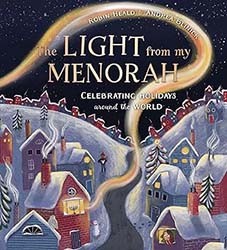Eleanor Ehrenkranz, professor and frequent lecturer, introduces her readers to a broad collection of contemporary Jewish poetry, here all in English but much originally written in Hebrew and Yiddish. Grouping her selections under the headings Love, Loss, Family Relationships, Death, Alienation, War, and Renewal, Ehrenkranz brings to these subjects poems that draw on a shared sensibility, strands from the Bible, Jewish history, and collective memory — and ultimately a rich appreciation of contemporary Jewish poetry and experience.
Opening the book to almost any poem, readers will find themselves immediately drawn in. It’s easy to picture “that skinny, long-beaked boy” in the branch library whom Edward Hirsch catches so sharply, “flying between the wobbly stacks,” or to sympathize with Judith Viorst, who asks, “What is reading poetry at 16/ As opposed to putting on your shoe at 89?” In a deeply American poem Robert Pinsky meditates on his Jewish connection to baseball; Uri Zvi Greenberg, powerfully reflecting on the Holocaust, protests, “We were not like dogs among the Gentiles…they pity a dog.” The poems take us to Brownsville and the Israeli war front, from the most ordinary daily experiences to life-shattering events, from the Yiddish-toned laments of Abraham Sutzkever to the sure-voiced Israeli statements of Yehuda Amichai.
Highly accessible, this collection highlights major contemporary poets — Louise Glück, Stanley Kunitz, Anthony Hecht, Dahlia Ravikovitch — but, like any thoughtful collection, also includes work by less familiar but highly accomplished poets. By drawing on poetry from the three languages spoken by most Jews, Explaining Life offers a varied and valuable look at the Jewish poetry of the past half century. An added feature are comments by well-known figures on about a dozen poems. Brief biographies.
Maron L. Waxman, retired editorial director, special projects, at the American Museum of Natural History, was also an editorial director at HarperCollins and Book-of-the-Month Club.





